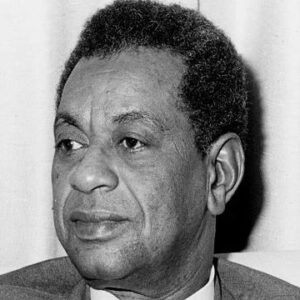The book “Season of Migration to the North” by Sudanese author Tayeb Salih brought him a lot of attention. Literary critics often said of him that he was the “genius of the modern Arab novel.” As the son of religious teachers and small farmers, Tayeb Salih set his stories in his hometown to show how people live together in the country. In a time when Arabic literature was mostly about social criticism, the harsh realities of life, and serious writing, he broke the monotony with his own ideas that came from his cultural background and religious upbringing. After working as a teacher, journalist, and radio host, he turned to writing and wrote some of the most famous books. “Muslim al-Hijra ila al-Shamal,” which means “Season of Migration to the North,” became his most famous work of fiction and made him one of the best Arabic writers of the 20th century. Even though he was the best novelist in the Arab world, his work was not well known in the US. Still, his books were so well-known that they have been translated into more than 20 languages. He wrote “Urs al-Zayn,” “Al-Rajul al Qubrosi,” “Doumat Wad Hamid,” and “A Handful of Dates,” among other books. He came up with a yearly award to support and encourage young writers.
Early years and childhood
On July 12, 1929, Tayeb Salih was born in Karmakal, which is close to the village of Al Dabbah in northern Sudan. He was born into a family of farmers and religious teachers.
He first went to Quranic school and then finished his education at Gordon College in Khartoum.
He went to school at the University of Khartoum and got a job as a teacher, but he wanted to work in agriculture.
Eventually, he left to study at the University of London in England.
Tayeb Salih’s Career
After getting his degree from the University of London, he went to work as the Head of Drama for the BBC’s Arabic Service. The Ministry of Information in Doha, Qatar, then hired him as Director-General.
He was UNESCO’s representative in the Gulf States for ten years.
He first learned about literature when he wrote a weekly column for al Majalla, an Arabic magazine based in London.
Even though he lived most of his life outside of Sudan, most of his stories were about village life and the complicated relationships of people there.
In 1966, he published the book “Mawsim al-Hijra ila al-Shamal.” It came out in English in 1969 and has since been translated into more than 30 languages.
Even though the book was popular all over the world, it was banned in Sudan. It was turned into a play, and Mohammed Bakri, who played the main character, won the award for Best Actor at the Acco Festival of Alternative Israeli Theater in 1993.
In 1969, his collection of funny short stories, Urs al-Zayn, came out. It tells the story of a strange-looking man who has trouble finding a wife.
“Daw al-Bayt” (Bandarshah I, 1971), “Maryud” (Bandarshah II, 1976), “Al-Rajul al Qubrosi” (The Cypriot Man, 1978), and “Doumat Wad Hamid” are some of his other books written in English (The Doum Tree of Wad Hamid, 1985).
Works of note
In 1964, he published a collection of short stories called “A Handful of Dates.” In these stories, he tried to show the reader that life isn’t just a palette full of worries, but that there are many things to choose from.
His 1966 book “Mawsim al-Hijra ila al-Shamal,” which means “Season of Migration to the North” in English, is a modern classic of Arab literature. It is about the clash of east and west civilizations and made him famous all over the world.
In 1998, he started the Yearly Award with the Abdelkarim Mirghani Cultural Center in Omdurman. The Board of Trustees gives the award to a writer from one of the participating novels. In 2003, the first prize was given out.
Awards & Achievements
His book “The Wedding of Zein” was turned into a movie in Kuwait. Both critics and movie fans liked the movie, and it won an award at the 1976 Cannes Film Festival.
In 2001, the Arab Literary Academy in Damascus called his book “Season of Migration to the North” “the most important Arabic novel of the 20th century.”
In a 2002 poll of writers from 54 countries, “Season of Migration to the North” was chosen as one of the “100 Greatest Books in History.”
Personal History and Legacies
In 1965, he married a Scottish woman named Julia Maclean and moved to southwest London. Zainab, Sara, and Samira are their three daughters.
He died in a London hospital on February 18, 2009, after his kidneys gave out. He was 80 years old.
His body was flown to Sudan, where he was buried on February 20 at al-Bakri Cemetery in Omdurman in front of more than 1,500 people.
In 2008, the Tayeb Salih Short Story Writing Prize for Youth was created by the Abdelkarim Mirghani Cultural Center as a way to honor this famous Arab novelist.
In his honor, Khartoum International Community School (KICS) started the Yearly Award, which rewards talented KICS students.
Estimated Net worth
Tayeb is one of the wealthiest authors and is on the list of the most popular authors. According to our research and information from Wikipedia, Forbes, and Business Insider, Tayeb Salih is worth about $1.5 million.


